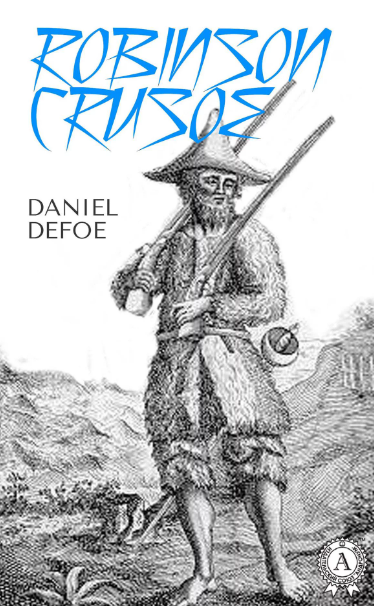A quotation from a literary criticism book ‘The Rise of the Novel’ by Ian Watt. This scholarly effort examines the rise of the novel in the early eighteenth-century English writers: Daniel Defoe, Samuel Richardson, and Henry Fielding. This quotation is taken from the chapter on Robinson Crusoe
…Here is invincible patience recommended under the worst of misery, indefatigable application and undaunted resolution under the greatest and most discouraging circumstances ‘.
Having asserted an autobiographical meaning for his story, Defoe goes on to consider the problem of solitude. His discussion is an interesting illustration of Weber’s view of the effects of Calvinism. Most of the argument is concerned with the Puritan insistence on the need for the individual to overcome the world in his own soul, to achieve a spiritual solitude without recourse to monasticism. The business is to get a retired soul’, he says, and goes on: All the parts of a complete solitude are to be as effectually enjoyed, if we please, and sufficient grace assisting, even in the most populous cities, among the hurries of conversation and gallantry of a court, or the noise and business of a camp, as in the in the deserts of Arabia and Lybia, or in the desolate life of an uninhabited island’.
This note, however, occasionally relapses into a more general statement of solitude as an enduring psychological fact: All reflection is carried home, and our dear self is, in one respect, the end of living. Hence man may be properly said to be alone in the midst of crowds and the hurry of men and business. Al the reflections which he makes are to himself; all that is pleasant he embraces for himself; all that is irksome and grievous is tasted but by his own palate.’ Here the Puritan insistence on possessing one’s soul intact from a sinful world is couched in terms which suggest a more absolute, secular and personal alienation from society. Later this echo of the redefined aloneness of Descartes’s ‘solus ipse’ modulates into an anguished sense of personal loneliness whose overpowering reality moves Defoe to his most urgent and moving eloquence:
“What are the sorrows of other men to us, and what their joy? Something we may be touched indeed with by the power of sympathy, and a secret turn of the affections; but all the solid reflection is directed to ourselves. Our meditations are all solitude in perfection; our passions are all exercised in retirement; we love, we hate, we covet, we enjoy, all in privacy and solitude. All that we communicate of those things to any other is but for their assistance in the pursuit of our desires; the end is at home; the enjoyment, the contemplation, is all solitude and retirement; it is for ourselves we enjoy, and for ourselves we suffer.”
‘We covet, we enjoy, all in privacy and solitude’: what really occupies man is something that makes him solitary wherever he is, and too aware of the interested nature of any relationship with other human beings to find any consolation there. “All that we communicate … to any other is but for their assistance in the pursuit of our desires’: a rationally conceived self-interest makes a mockery of speech; and the scene of Crusoe’s silent life is not least a Utopia because its functional silence, broken only by an occasional ‘Poor Robinson Crusoe’ from the parrot, does not impose upon man’s ontological egocentricity the need to assume a false façade of social intercourse, or to indulge in the
mockery of communication with his fellows.


